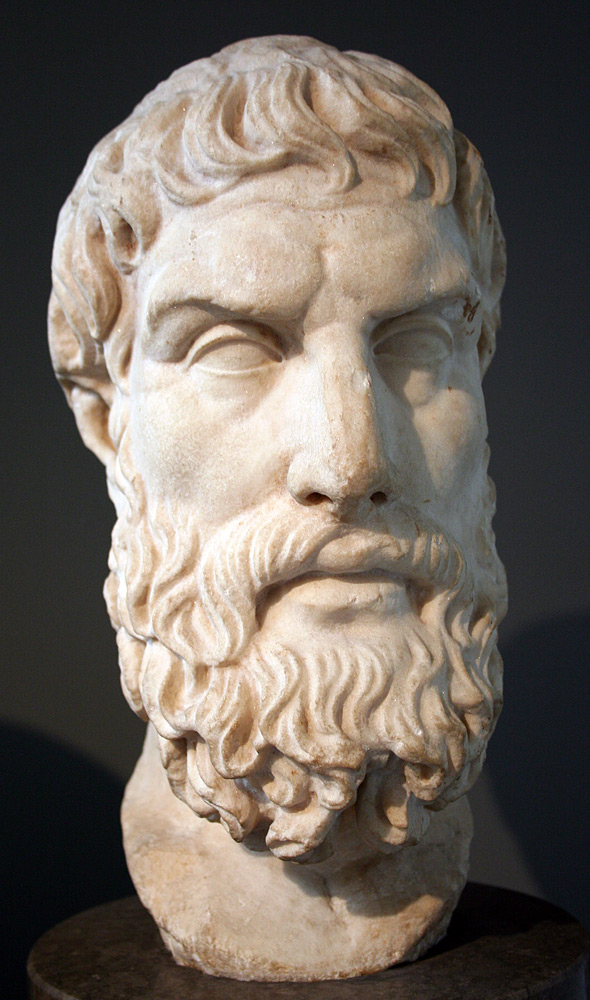 Natural selection builds child brains with a tendency to believe whatever their parents and tribal elders tell them. Such trusting obedience is valuable for survival: the analogue of steering by the moon for a moth. But the flip side of trusting obedience is slavish gullibility. The inevitable by-product is vulnerability to infection by mind viruses.
Natural selection builds child brains with a tendency to believe whatever their parents and tribal elders tell them. Such trusting obedience is valuable for survival: the analogue of steering by the moon for a moth. But the flip side of trusting obedience is slavish gullibility. The inevitable by-product is vulnerability to infection by mind viruses.-Richard Dawkins, The God Delusion
During the run up to the
It was a rather odd campaign, as far as these things go, because it become dominated by a single issue – the proposal by John Tory, leader of the Progressive Conservative Party, to use tax dollars to fully fund faith based schools. What was odd about this was that this was not an issue on the public front burner when the writ was dropped. Indeed, the idea that this was a serious election would have been laughed at only a few months before. But the issue, manufactured thought it was, overshadowed everything else. Taxes, health care, transportation, the environment. All issues that were being talked about before the election played a second fiddle to the issue of faith based schools.
The original plan was to do a single comprehensive feature on the subject. And part of that feature was to look other places where public money is being directed at faith schools. As it happens, there were at least two places that could provide Ontarians with interesting case studies –
But, as go the best laid plans of mice and men, the feature didn’t exactly pan out as planned. Space restrictions prevented me from writing the story as I had wanted and several bits were cut out. In order to save as much material from my interview with Prof. Dawkins and Jean Barman, a historian with the
------
Richard Dawkins: What is the current situation in
Grant LaFleche: At present, the
RD: Why Catholic?
GL: It goes back to the British North America Act that created the country. The act does not require a Catholic system, but allows for it.
RD: “So you are saying that Protestants don’t get government funding, but Catholics do…
GL: “Yes, that’s right.”
RD: “That’s bizarre.”
GL: It is bizarre, and that is one of the reasons one of the political parties is suggesting the extension of funding to other religious schools.
RD: Ah, ok. Yes.
GL: What is the current situation in the
RD: For quiet some time there have been Protestant schools, Catholic schools, and I think Jewish schools which are partly funded by their respective churches and partly funded by with government aid. So there has long been such schools. And they represent most of the Christian denominations, plus Jews and what is going on now there is agitation from Muslims. It’s a kind of ‘me too’ agitation and it sounds like you’ve got the same problem. Instead of drawing the obvious conclusion that the me-toos should all go, I mean all drop their faith affiliation, the government is sympathetic to the me-tooism saying well if the Christians have the faith schools the Muslims should get it too.
RD: Up until recently I would have said no but there is some indication that the American disease of creationism is starting to infect British schools.
GL: What has this done to scientific education? The Christian schools I speak to here are very adamant about this. They want to teach creation, as early as grades 2, 3 and 4, and if they teach evolution is it taught as “just a theory.”RD: My impression is even though you get a proper scientific education in British schools at a later age, young children are still taught the creation story. The people who lay down the national curriculum must know its nonsense, but somehow think its ok for children.
GL: Can you even teach something like science properly if a school say they have a theological objection to geology or biology or...
RD: Well of course you can’t teach it properly. It is a total and complete subversion of scientific education and a scandal when that happens.
RD: Well, I have heard that about
GL: Now, when I asked you previously about British religious schools you said that even a few years ago would you have said Anglican schools teach well…
RD: Yes. But even then I forgot to remember that young children were also taught about Noah’s Arc and Adam and Eve and that sort of thing. Not because, it seems, the teachers think it’s factually true but they just think it’s sort of what children ought to be taught as part of their culture I suppose.
GL: Does that have an impact on a student’s ability to learn fact based science later on? If you are a student who was brought up in a system that teaches you one thing in what we could elementary, jr. high and high school, and then toward the end they say tell you ‘Well, in fact things are much different that you were previously taught.”
RD: It’s a fascinating question. I'm just totally gob smacked because I've only just realized this is what elementary school children are being taught. I happen to be looking up the British national curriculum last week for a speech I am giving in
The children are encouraged to discuss this aspect of Noah’s Arc and that aspect of Noah’s Arc. In a way it’s quiet educationally laudable. The children are encouraged to ask questions like “Would Noah have been frightened of the flood?” and “What do you think about the fact that God was willing to wipe out the whole of the world just because the people were sinful, except for Noah and his family?”
GL: Isn’t that a bit like counting the number of angels on a head a pin?
RD: Yes. It's teaching the children, in a sense, to think and to ask questions. But they are thinking and asking questions about things that are not factually true, which nobody seriously believes is factually true, and they never tell the children isn't true.
GL: What is the reaction to what you say about this from British citizens when they attend you lectures?
RD: Well what I am saying to you now about Noah’s Arc is brand new to me. What I usually talk about is the labeling of children, which has long been a bee in my bonnet. The description of a child as a Catholic child, or a Protestant child or a Jewish child or a Muslim child. I have long thought this is a form of mental child abuse because it ties a label around a child's neck that said what that child's opinions are on the universe, on life, on morality on humanity. The child of four or five is clearly much too young to have opinions on those things. And I used the analogy that you would never dream of talking about a Conservative child or a Liberal child or a Monetarist child or a Marxist child.
GL: Well, you just be laughed at.
GL: You mentioned this idea of “me-tooism” earlier. What’s your sense on how that is being regarded in the
RD: Well, as you know, most people have a sense of fair play but they don’t think it through. They can see that it is unfair that there are Christian schools but hardly any Muslim schools but what they don’t see there are two ways of dealing with that. You can say “Ok, we’re going to make Muslim schools,” or you can say “Right, ok, we are going to scrap the Christian schools.” I think we should scrap the schools.
GL :One of the arguments here, when criticizing the idea of faith schools, is that once you fund the rainbow of religious schools you would end up segregating students from each other.
RD: That is a separate point and a very important one. It’s divisive. It’s discriminatory Even if the children are not systematically taught all Catholics are wicked or whatever the case may be, they get the idea there is a kind of them and us. That is an extremely evil thing to do to a child.
GL: What is the place in terms of public education for religion?
RD: I think you should teach comparative religion. Religion is a very important fact about human life, about anthropology about sociology, psychology and children need to know what it means to talk about Christianity, Islam, Roman Catholicism and so on. You can’t understand history without it. You cannot understand literature with out it. But what you must not do is teach a child you are a Catholic child you are a Muslim child.
GL: How should people who are concerned about this best raise this issue?
RD: Apart from voting and taking part in normally political activities like writing your member of parliament, what I talk about a lot is consciousness raising after the feminists. The feminists raised our consciousness about things like sex biased pro nouns. Its not that we have any law against talking about one man one vote, but when you do say that you feel awkward, you know you’ve said something people will object too. So consciousness has been raised. And I think we have to consciousness about the very phrase Catholic child or Muslim child and I think it can be done. I’m not quiet sure writing letters or interrupting someone who talks about a Christian child. “What do you mean a Christian child? Would you talk about a Keynesian child? What about a Republican child? Of course you wouldn’t.” I think if enough of us say that at dinner parties, letters to the editor and parent-teacher meetings we might raise consciousness in the same way the feminists raised our consciousness decades previous.
















No comments:
Post a Comment